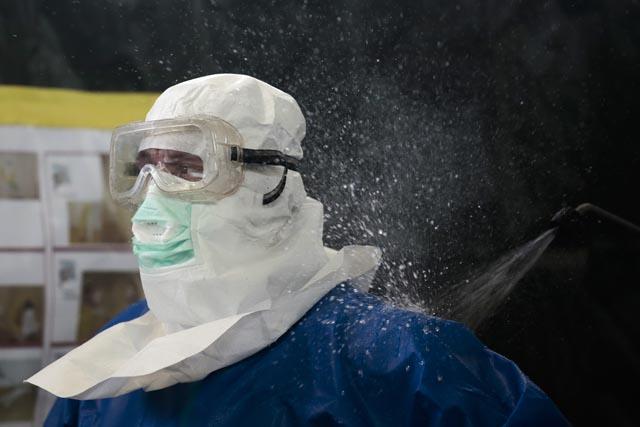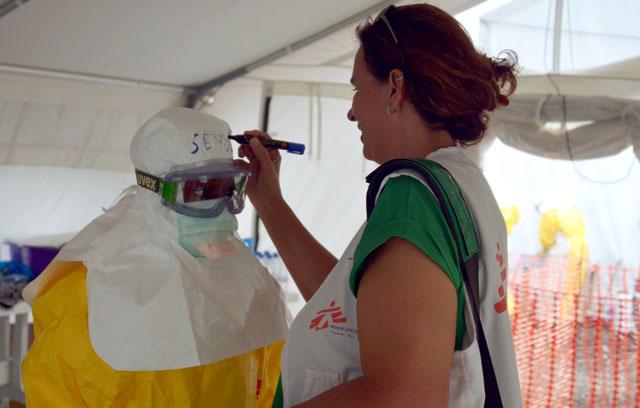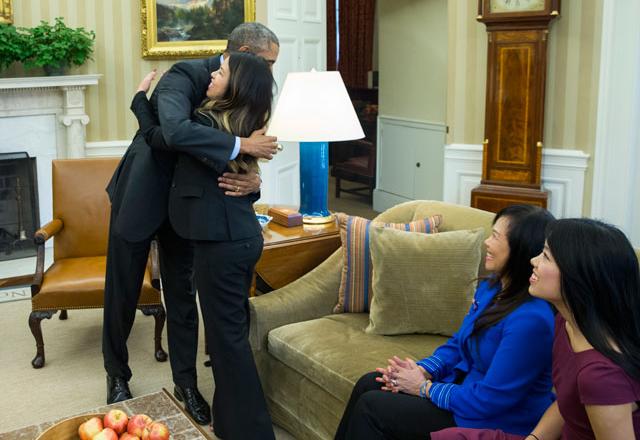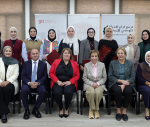You are here
WHO ramping up Ebola protection efforts
By AFP - Oct 16,2014 - Last updated at Oct 16,2014
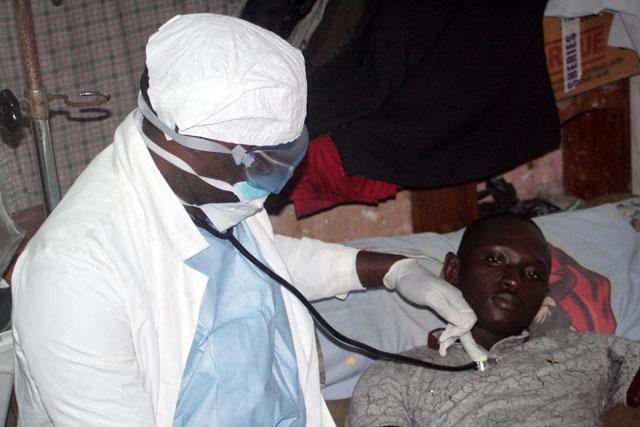
GENEVA — The World Health Organisation (WHO) said Thursday it was increasing efforts to help several African countries fight Ebola if the deadly virus arrives on their soil.
"It will take time, months, before this outbreak is stopped. In the meantime, we need to make sure it doesn't spread to other countries," Isabelle Nuttall, head of WHO's alert and response arm told reporters in Geneva.
With the death toll from the outbreak ravaging west Africa set to pass the 4,500 mark this week, and the total number of infections expected to exceed 9,000, Nuttall acknowledged that the virus will surely pop up in a number of countries.
"They may have a case, but after one case, we don't want more cases," she said, explaining the push to boost preparedness in Africa.
Most focus will be on Guinea Bissau, Senegal, Mali and the Ivory Coast, which border Ebola-ravaged Guinea, Sierra Leone and Liberia.
Ten other nations — Benin, Cameroon, the Central African Republic, the Democratic Republic of Congo, Gambia, Ghana, Mauritania, Nigeria, South Sudan and Togo — have been singled out for special assistance based on their road and trade ties to the affected region, as well as to the state of their health systems, Nuttall said.
Special WHO teams will visit to help them evaluate their response plans, carry out simulation exercises and make sure they have enough protective equipment in place for health workers in case Ebola does surface there.
Countries need to have systems in place to ensure the sick can be quickly diagnosed, isolated and that their surroundings can be protected, she said.
Being able to rapidly track contacts is of the utmost importance, she said.
WHO will also help create a checklist of the best materials for fighting the virus, Nuttall said, pointing out for instance that open pick-up trucks allowed for far better protection for drivers and health workers when transporting the sick than closed ambulances.
Screening 'false security'
She acknowledged that people infected with Ebola but not yet showing symptoms could easily travel much further afield than the African nations on the WHO list, as has already been the case in the United States.
But "there is a difference between a case arriving in a country and Ebola spreading in a country", she said, stressing that in countries with strong healthcare systems there was little chance of an outbreak.
"The problem of Ebola is in three countries in Africa," Nuttall said, insisting that "we need to bend the curb in these three countries".
The United States and European countries are increasingly beginning to screen the temperatures of passengers arriving from the affected region.
While WHO recommends exit screening of passengers from the badly affected countries, it does not recommend entry screening, although the organisation does not oppose such screening either, Nuttall said.
Nuttall cautioned though that such screening does not pick up passengers not running a fever and could "give a sense of false security".
"Everyone must remain vigilant," she said, pointing out that the case of a Liberian man who travelled to the United States before showing symptoms of Ebola, and who died on October 8, would not have been detected.
Related Articles
Travellers entering Jordan from Liberia, Sierra Leone and Guinea, the three West African countries hit hardest by the deadliest Ebola outbreak in history, will be monitored and undergo necessary checkups at the airport, according to the Ministry of Health.
Aid agency Oxfam on Saturday said Ebola could become the "definitive humanitarian disaster of our generation", as US President Barack Obama urged against "hysteria" in the face of the growing crisis.
The first person quarantined under strict new rules in the New York City area for people with a high risk of Ebola tested negative, New Jersey officials said on Saturday, as President Barack Obama said the response to domestic cases of the deadly disease needs to be based on "facts, not fear".


